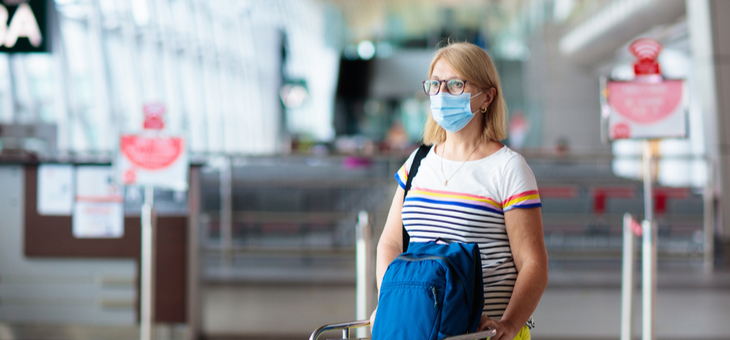People are keen to start travelling again, but they have a lot of questions.
We have compiled a list of some of the most frequent questions we have received relating to travel in the new COVID normal.
When can I travel to New Zealand? – Edwina
This is an answer that does seem to change by the week. New Zealanders were able to cross the ditch to visit us, starting from Friday 16 October, and there are hopes that travel the other way will be able to start before the end of the year.
Once both governments are able to see how travel works between the two countries and make sure that all the safety protocols work well, we can expect to see Australians from ‘COVID-safe’ areas able to avail themselves of travelling across the Tasman.
After New Zealand, what other places are likely? – Greg
New Zealand has already started opening up to other Pacific Island nations, so they seem like the obvious next places where travel bubbles will start to operate.
After the Pacific Island nations, Asia is the next most likely with Singapore, South Korea and Japan all being mentioned at various times.
Prime Minister Scott Morrison told The Courier-Mail recently that cabinet ministers have discussed the potential for travel bubbles with Southeast Asian leaders.
When will we be able to travel freely again? – Mary
Unfortunately, no-one knows the answer to this one yet. Australia’s international borders remain firmly shut (with the exception of New Zealand) mentioned above. The current travel ban will most likely be in place until sometime next year and the Department of Home Affairs hasn’t provided any guidance as to when this is likely to be lifted.
What are the quarantine rules for domestic travel? – Mark
This depends on where you are travelling to and from. If the borders are open between your two states and territories that means that there are no quarantine requirements.
If you have an exemption from a COVID-19 hotspot to travel across a state border you will usually be required to monitor your health for up to 14 days after flying, in an isolated quarantine facility or at your home (depending on which way you have travelled).
With so many different rules across Australia, it is important to check the travel rules and guidelines for each location you are thinking about travelling to.
Do I have to pay for my own quarantine? – Steve
It depends on which state or territory you are expecting to quarantine in. It does seem that most locations are starting to work towards a user pays model with the cost of 14-day quarantine costing between $2500–3000.
Which states and territories are open? – Melissa
If there is one thing we have learnt from the pandemic, it is that nothing stays the same for too long. Here are the government websites for each region in Australia, which you will need to check before you embark on any domestic travel.
What should I do about my refund? – Susan
The Australian Competition and Consumer Commission (ACCC) produced new guidelines for COVID-19 travel cancellations earlier this year.
According to the guidelines, if the terms and conditions of your ticket or booking state you are entitled to a refund you will get a refund.
You will also be entitled to a free-of-charge refund if you are entitled to one under the common law or under your relevant state or territory legislation.
All travel providers are still swamped with refund requests, so it can take some time. That doesn’t help if you need the money urgently, but refunds are still being processed and, if you have a commitment from a reputable travel agent that these will be processed, you might just have to be patient.
What protection is there if I book a trip and it is cancelled? – Eric
Realising that most travellers are somewhat wary about making bookings in the current climate, most providers have adjusted the way they do business. This means that there are more flexible cancellation policies to encourage travellers to feel more confident. See what is available before you make any booking, but there should be a range of options available to you should your travel not be able to go ahead for coronavirus-related reasons.
What changes will occur at airports? – Giselle
The transition towards ‘touchless’ technology at airports was already happening before the pandemic, but it has been hyper-charged now. This will eventually lead to more facial-recognition software to verify passenger identities. Airport design specialist Ibrahim Ibrahim told cnbc.com that we could even see the introduction of iris-scanning technology in the not-too-distant future. With social distancing measures likely to stay in place for some time, you can also expect screening times to take longer to minimise passengers bunching up.
Is it safe to fly? Will there be physical distancing? – Matthew
Domestic flights are yet to mandate physical distancing on board aircraft, which is making many people hesitant about flying. According to advice from the Department of Transport, there have been few published reports of COVID-19 transmission in flight, particularly where appropriate control measures have been implemented.
The department says that the risk is mitigated by forward-facing seats, the height of the seats, the ventilation and filtration systems and other control measures applied prior to flight.
Do you have a travel question? Where are you most excited about travelling to?
If you enjoy our content, don’t keep it to yourself. Share our free eNews with your friends and encourage them to sign up.
Related articles:
https://www.yourlifechoices.com.au/travel/travel-resources/ten-things-to-stop-on-aeroplanes
https://www.yourlifechoices.com.au/travel/news/nt-to-accept-victorian-visitors
https://www.yourlifechoices.com.au/travel/flying/why-is-your-passport-that-colour

